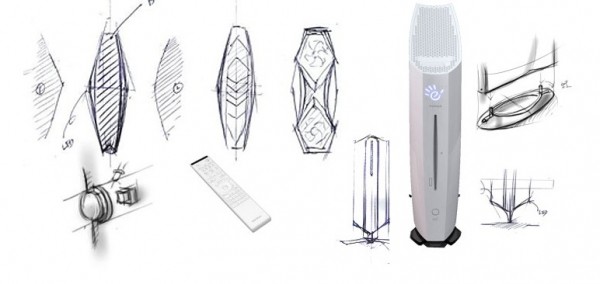Introduced as the "eBox" last August, Lenovo's video game console was originally scheduled to debut in China sometime during November 2010 and elsewhere in the first quarter of 2011. Having missed its launch target, some folks wondered if the project was scrapped, but that isn't the case at all according to fresh details from Lenovo.
The company said today that the console will hit Chinese shelves in the second half of this year and if the device exceeds one million sales, Lenovo will consider bringing it to overseas markets. Jack Luo, CEO of eedoo Technology, the group developing the console, expects to sell more than a million units annually for the first few years.
The company also revealed that the device's name has been changed to "iSec," short for "Sports Entertainment Center." Considering China's restrictions on mature entertainment, it's no surprise that the console will be focused on family gaming. Games will mostly be sports-themed, such as skateboarding and martial arts.
"[iSec] may not have exquisite game graphics, or extensive violence, but it can inspire family members to get off the couch and get some exercise," said Luo. The console is expected to have around 30 free games when it finally arrives this year and those titles will be played with a built-in motion-sensing technology similar to the Kinect's.

Outside of gaming, the console will also serve as a home entertainment center, offering movies, a karaoke feature and access to the Internet. Exact pricing has yet to be determined, but the iSec will reportedly cost more than Nintendo's Wii and possibly less than Microsoft's Xbox 360. The former starts at $150 while the latter is $200.
China's game market is largely untapped as Sony, Microsoft and Nintendo have had their primary consoles banned by the government. Both Sony and Microsoft continue to seek approval from Chinese regulators and the Xbox might launch this July. While the Wii is prohibited, some Nintendo products are sold under the iQue brand.
While Lenovo chairman Liu Chuanzhi said he enthusiastically supports the iSec, he recognized the difficulties that lay ahead in marketing a console based on motion detection. "Everyone can see that there will be some technological obstacles, and that the market is not totally mature. As a result, this project will face challenges."